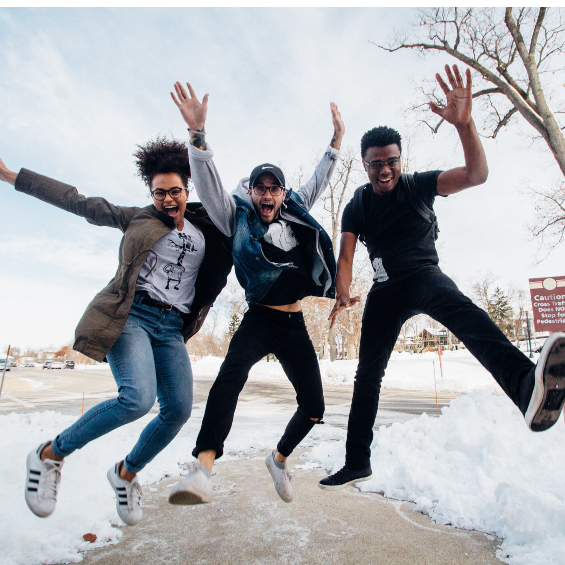Social Awareness Youth Visions (SAYV)
SAYV Project is an organization devoted to giving young people and teens a platform to speak about issues which are prevalent in today’s society through a series of events whose main focus is on resource-sharing and networking opportunities for other socially and politically active youth. SAYV Project hopes to expand its influence by encouraging SAYV events to be hosted in schools and communities throughout Maine. For more information and a culminating collection of all youth talks thus far, check out sayvproject.org.

Portland Empowered Youth Engagement Partners (YEPs)
Youth Engagement Partners (YEPs) are youth from Portland’s three public high schools who organize within their schools and district-wide to co-construct the future of high school education in Portland. YEPs are emerging leaders who represent many different backgrounds and experiences with education. YEPs identify and advocate for changes that will help Portland’s schools become more student-centered.
CivilTEA
The idea for CivilTEA emerged from conversations started two years ago between Pricillia Isimbi ’17 and Naissa Isaro ’18 with The Maine Girls Academy. It came into being due to the hard work of a group of youth and adults (Brendan Curran, Marie Eschner, Linda Freeman, and most importantly Deb Bicknell) working together for several months to think through the best way to start important conversations. The kind of conversation that can both help the MGA community to be safer and understanding environment and its students and faculty to be more informed about a variety of issues concerning the society and even in our own community.
The topics for the dialogues that will happen during CivilTEA were chosen by the students and the facilitators. These conversations were led by MGA students who have been trained to facilitate (and continue their training throughout the school year).
The dialogues that are held in small groups happen during the 90 minute 5th period of the Gold Block. In order to make the best use of this time and make sure students have a chance to talk, we follow a format that each facilitator will use. The groups will have approximately 5 to 7 participants in them. This number may fluctuate depending on how many trained facilitators we have (as of now we have 16 Facilitators).
- We start off all our dialogues with some sort of a presentation. Some examples from last year include: guest speakers, panels, videos, and power points that all had to do with the topic of everyone’s discussions.
- After the presentations everyone goes into their dialogue groups that are led by their peer facilitators. Here community norms are reminded so that everyone is safe before the dialogue proceeds. Ice-breakers are used to loosen everyone up and the earlier presentation is discussed.
- After the 45 minute dialogue, we assemble into the auditorium where we take 5 Minutes to have a short debrief of the topic of the day and feelings towards it.
Resources are always handed out. Whenever the subject of the next dialogue is announced, resources are printed out and hung around school with credible books, sites, and hotlines for any student or facility member who would like to learn more. This allows everyone to feel comfortable when entering this conversations. CivilTea dialogues are not meant to be easy, but difficult and uncomfortable discussions. We push away from sheltered topics and a “black and white” mindset and dig deep on the current issues that face our society.
CivilTea was also inspired by something bigger. Both Pricillia and Naissa are apart of Seeds of Peace. There, they learned the importance of dialogue. They were able to take what they had learned and bring it back to their community. Through the aid of Deb Bicknell, MGA was able to form their own dialogue curriculum. Both students and facility and staff members are able to learn facts and materials they may not be able to incorporate within their traditional classrooms or household. However, every belief is valued. These dialogues were not created to isolate people due to their ideals, but to understand each other. At The Maine Girls Academy, we have definitely learned how to understand each other slowly but surely.

